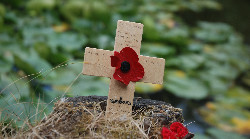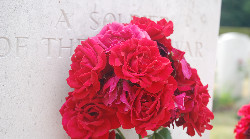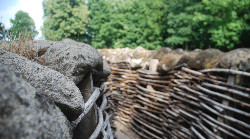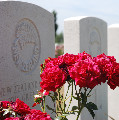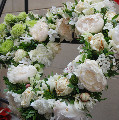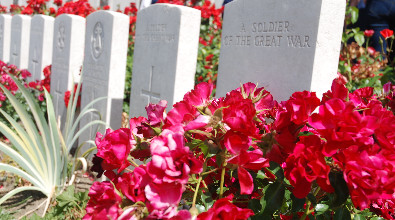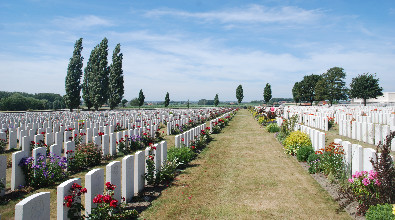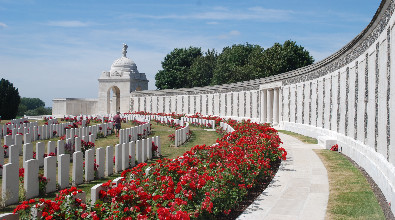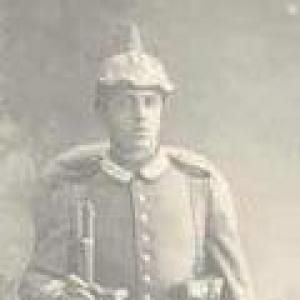"Leben ist vergänglich, doch die Achtung und Erinnerung bleiben"
"Life is transient, but the respect and recollection remain"
My name is Hannah and I'm 16 years old. I live in Frankfurt a.M. in Hesse/ Germany and I'm visiting the 11th grade, with the main classes Spanish, Biology and History.
I was one of the German students who had the chance to participate in this amazing and special project! In the "official" blog you can read more of my texts regarding this project. I had the honour to adopt and represent the German soldier Karl Götz, who died in WW1.
Directly on the first day I presented my soldier and I was positively surprised about all the feedback and the resulting conversations about my soldier and what the project means to me/us. I felt myself in really good hands, surrounded by really lovely people! Also, the language barrier disappeared after a few hours (obviously English isn't my first language). At lunch time we got to know the Irish students and got into conversations. About the project, the cultural differences, and about our daily lives and interests. By doing for example, a scavenger hunt together, we got to know each other better and the situation got more and more loosened.
The project has such a unique intention, what we, I, realized really fast. Though on the cemeteries we also realized something different, what we haven't had expected the project will show us: How German and Irish students react differently being on the cemeteries, how we felt being there in Flanders and what different significance WW1 has in different countries. (On the official blog you'll find an own text about that). While the Irish students reacted really emotional, we Germans, me included, were more... neutral.
Maybe that could seem like the project haven't had affected me in the way it should. It's difficult to explain, but it gave so much to all of us, but to everyone something different. But definitely I learned in these 4 days, we've spent in Belgium, a lot! Being on the cemeteries (especially with this amazing group) was such a unique experience I will remind for a really long time! I did not only learn about WW1, rather more about me personally, Ireland, and the things that seem so natural to us! Also, I'm really grateful that I got to know so many amazing people! How you all interacted with us, the conversations we've had, was something what made the trip in another way so awesome and unforgettable!
